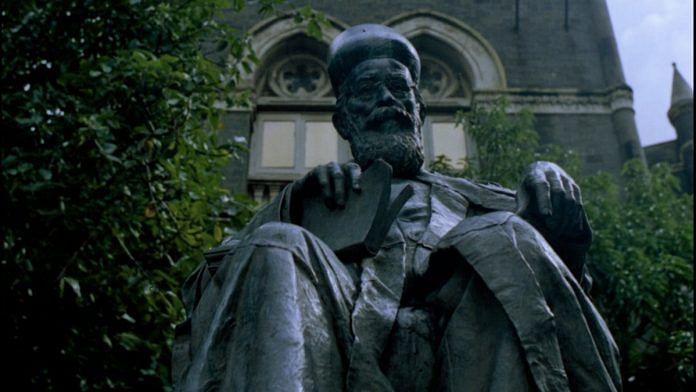New Delhi: The Rajasthan political crisis has thrust the Congress in the limelight for how the party’s leadership has been handling the Sachin Pilot situation, even drawing some criticism from within the party. Contrast this state of affairs with the historical founders of the Congress, not only Mahatma Gandhi or Jawaharlal Nehru but the man who inspired them — Dadabhai Naoroji.
The ‘Grand Old Man’ was a foundational figure in India’s modern political history, says historian Dinyar Patel in his biography ‘Naoroji: Pioneer of Indian Nationalism’ and goes beyond the just the formation of the Indian National Congress.
The book published by Harvard University Press and re-presented by Harper Collins will be launched online on 25 July on SoftCover, ThePrint’s new e-venue to launch select non-fiction books.
The book is claimed to be the first comprehensive study of the most significant Indian nationalist leader before Gandhi.
In it, Patel examines Naoroji’s infamous “drain of wealth” theory, how the leader established self-rule as India’s objective and was able to counter the British from within their own parliamentary system. After all, Naoroji was the first Asian to sit in the British Parliament.
Patel chronicles Naoroji’s political rise in three phases. The first is Naroji’s role as an activist whose “drain of wealth” theory held the British responsible for India’s poverty and famines. The second is when he made allies with critics of British Empire like socialists and Irish home rulers, and got elected to the House of Commons with the goal of instituting political reforms. The last is when he became more radical and fully enunciated his demand for swaraj.
The biography, written in seven chapters, also details Naoroji’s electoral campaigns that won him a seat from Central Finsbury in 1892.
Patel is Assistant Professor of History at the University of South Carolina whose academic research has focused on the freedom movement, the city of Mumbai, and the Parsi Zoroastrian community. He has also written for BBC News and the New York Times, among other publications.
Also read: Dadabhai Naoroji believed the Indian civil service was the reason for India’s poverty



